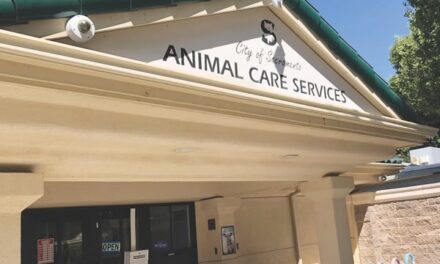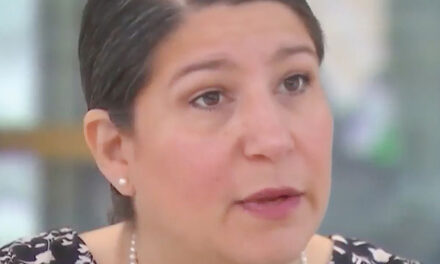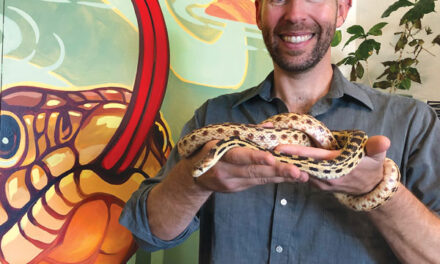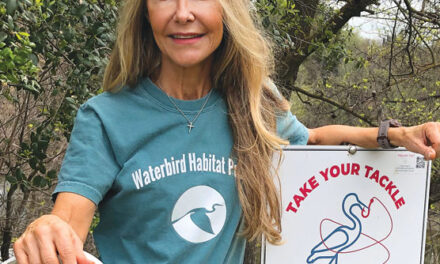A whale harpoon hangs on the reception area wall. A relic to prove a point: To change something bad, create something better.
“For thousands of years we harpooned whales to light our homes,” says Paul Shapiro, CEO of The Better Meat Co. “We didn’t stop because we care about whales. We stopped because kerosene was a cheaper way to light our house.”
Humans whipped horses to get from one place to another. That ended when cars were invented. Feathers were plucked from live geese for writing, until the metal fountain pen came along.
“Time after time, all these multi-millennia forms of animal exploitation were ended, not by humane sentiment, not by sustainability concerns. But rather simply through new innovations,” Shapiro says.
“I thought perhaps that’s what it’s going to take for farmed animals. We need new technology that will render their exploitation as archaic as a harpoon.”
Shapiro, a vegan since 14, started an animal rights group in high school that grew into a national organization. He conducted undercover investigations at factory farms and slaughterhouses, and made documentaries to expose cruelty.
A decade later, he joined the Humane Society of the United States, working on campaigns to pass laws to protect farm animals. After 13 years with the humane society, “I started wondering if food technology, food innovation, would do more to achieve my goals than what I was doing,” Shapiro says.
But he wasn’t a microbiologist or food scientist. He didn’t have the background or venture capital to launch his own company. “I was just a guy who cared deeply about animals,” he says.
So, Shapiro decided to write a book. “Clean Meat: How Growing Meat Without Animals Will Revolutionize Dinner and the World” was published in 2018 (updated this year). “It did better than I would have dreamt,” he says. “It opened a lot of doors for me.
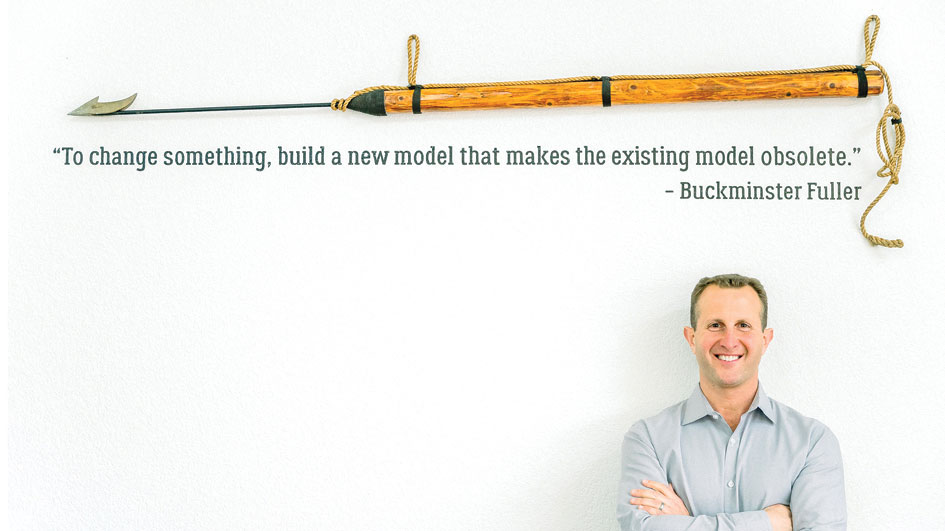
Paul Shapiro with The Better Meat Co. in West Sacramento.
“Now I had two choices. I could continue writing about the people who I thought might solve this problem. Or I could become one of them.”
In 2018, Shapiro co-founded The Better Meat Co., a 13,000-square-foot facility in West Sacramento that has grown from three to 22 full-time employees.
Plant-based meat substitutes, such as Beyond Meat and Impossible Foods, are widely available. Other innovators grow “cultured meat” from animal cells.
The Better Meat Co. uses fermentation. It starts with mycelium, a root-like structure from fungi. Through a stainless-steel fermenting process, the mycelium is fed a starch, typically corn.
The result—created in less than a day—is Rhiza mycoprotein (a term approved by the Food and Drug Administration). The single-ingredient Rhiza is chopped into small pieces, dried and packaged.
When rehydrated, Rhiza has a meat-like texture. It’s packed with protein, iron, zinc and potassium. It’s high fiber, low fat, cholesterol free. The Better Meat Co.’s demonstration kitchen creates tacos, burgers, turkey slices, sausages, fish fillets and even foie gras by adding seasonings and other flavor elements.
Rhiza is not sold in grocery stores. The Better Meat Co.’s primary customer is Perdue Farms, which blends the alternative meat into a chicken nugget product.
“We help them use fewer animals,” Shapiro says.
Rhiza is also found in two menu items at plant-based Buddha Belly Burger in Midtown, currently the only restaurant using the fermented meat alternative.
The West Sacramento facility is a “demonstration-scale plant.” Shapiro’s goal is to open a “full-scale fermentation factory” in the Midwest where the company gets its corn used in the fermentation process.
The West Sac plant will continue as corporate headquarters, says Shapiro, who lives in South Land Park with his wife, Toni Okamoto, a plant-based cookbook author, and their rescue pit bull Eddie.
“When we make the case for plant-based eating, we say it’s better for animals, better for the environment, better for you,” Shapiro says. “But humans have been eating meat for hundreds of thousands of years. They really like it. We are not going to change human nature.
“In the same way people were happy to leave whales alone once they had a cheaper way to light their homes, I think people will leave chickens and pigs alone when we have a better way to feed ourselves.”
Cathryn Rakich can be reached at crakich@surewest.net. Follow us on Facebook and Instagram: @insidesacramento.






